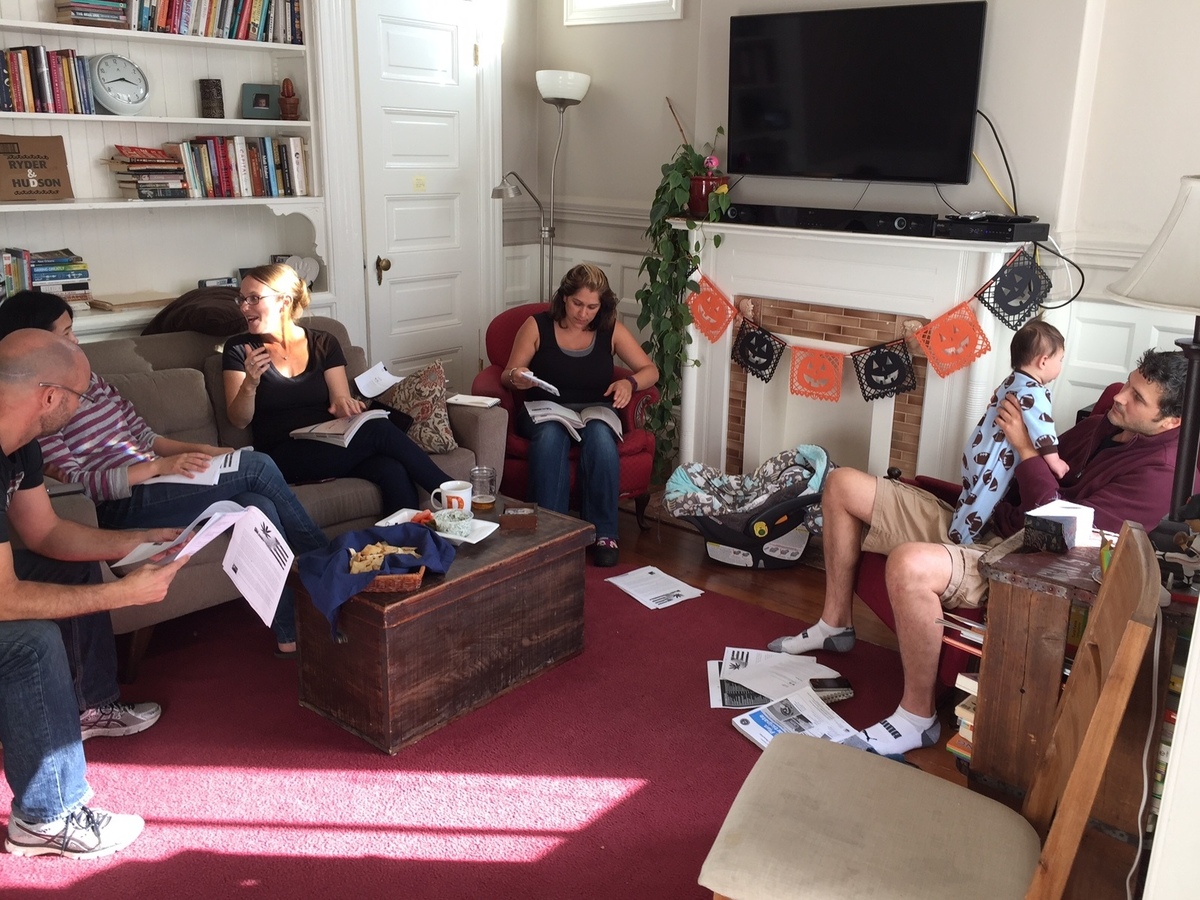
The City and County of San Francisco's voter information pamphlet explains its 25 local measures and the official state of California voter information guide explains its 17 state ballot measures. Ben Adler/Capital Public Radio hide caption

The City and County of San Francisco's voter information pamphlet explains its 25 local measures and the official state of California voter information guide explains its 17 state ballot measures.
Ben Adler/Capital Public RadioAmericans will decide more than 150 state ballot measures on Tuesday — up slightly from two years ago. That puts a lot of pressure on voters to study up on everything from marijuana legalization to gun control to the death penalty.
Californians in particular have a lot of homework to do. With 17 measures, their state has the longest ballot in the country this year. On top of that, there are 650 local measures around the state to decide on.
Voters are coming up with some creative ways to keep track of it all — like resident Deborah Barron, who had a "Proposition Party" at her home in San Francisco's Mission District.

Deborah Barron, third from left, hosts a proposition party on Oct. 30 at her home in San Francisco's Mission District. Ben Adler/Capital Public Radio hide caption

Deborah Barron, third from left, hosts a proposition party on Oct. 30 at her home in San Francisco's Mission District.
Ben Adler/Capital Public RadioLike any good host, she had snacks and drinks ready. But she also had hand-outs for the 17 state ballot measures and for the 25 local measures facing San Francisco voters.
The half-dozen adults at her house divvied up the prep work and took turns leading the discussion – starting with Proposition 51, the $9 billion statewide school bond.
"I mean, I don't know," says Barron, a 43-year-old attorney in private practice. "Normally, I am 'Yes' on education ones, but..."
"I'm kind of 'No' on this too," chimes in 43-year-old Eric Quandt of Berkeley, who works in the San Francisco Public Defender's office.
"That's how I feel," adds Jane Ivory Ernstthal. "But I feel so wrong!"
The group laughs. "Are you voting against the education of our youth?" Barron quips.
But party-goers quickly get frustrated.

Politics
From Pot To Guns To School Funding: Here's What's On The Ballot In Your State

Politics
Should Ammunition Buyers Face Background Checks? California's Voters Will Decide
"Everybody's got college educations. All of us work in things that are impacted by this," Barron says. "Numerous of us are attorneys, who read law for a living. And we still can't figure out how to vote."

NPR Ed
The Return Of Bilingual Education In California?
And if it's this hard for people who've been voting for years, imagine what it's like for first-time voters. Carlos Hurtado, a junior at the University of California, Davis, is feeling the pressure.
"It's just a lot, a lot to deal with," Hurtado says. "I gotta take some time on the weekend to look over everything."
Asked if he planned to vote on all of the ballot measures, Hurtado replies: "The ones that I feel strongly about."
"I'll probably just scan it, see what interests me," says Julietta Zuvia, another student at UC-Davis.
It's a strategy that might make some long-time voters cringe, but not Kim Alexander with the California Voter Foundation.
"I worry that people look at these 17 propositions and mistakenly think they have to vote on every single one of them – which they don't," Alexander says.
She says it's far better to leave something blank than to do what voters typically do, which is vote 'No.'
For voters who are overwhelmed by all those ballot measures, Alexander offers a California election tradition from her and her colleagues – the Proposition Song. She contributes on vocals and ukelele.
The tune uses music — think Schoolhouse Rock — to explain each of the state's 17 measures.
Here's the chorus:
"It's the Proposition Song.
You should all be singing along.
'Cause the ballot is too darn long."
And a lyric:
"Proposition 56 would enact
a new tobacco tax.
If it passes smokers pay two more bucks per pack."
Of course, the song isn't the only way voters can learn about all the ballots. There's the state's official voter information guide and also a myriad of online guides – professional and amateur, with graphics, videos and even mock text message chats. And then, there are Proposition Haiku, from Los Angeles Democratic Party activist Damian Carroll. Here's a taste of that:
Proposition 59
Asks to overturn
Citizens United, But
Shucks, it's non-binding
Kim Alexander, of the California Voter Foundation, says all those ballot measures do have a benefit.
"Love it or hate it, California voters get to make law directly when we vote," Alexander says. "And that's a huge amount of power – especially when you're talking about California, because we are a very influential state."
It is indeed a huge amount of power, vested in 18 million California voters — many of whom aren't quite sure what to do with it.
No comments:
Post a Comment